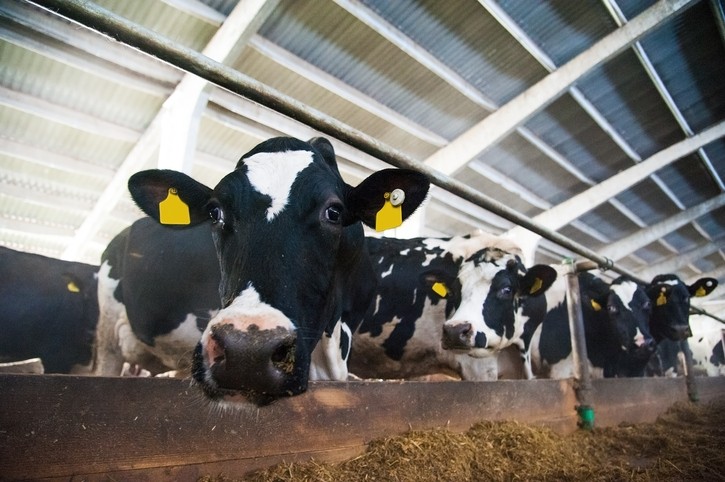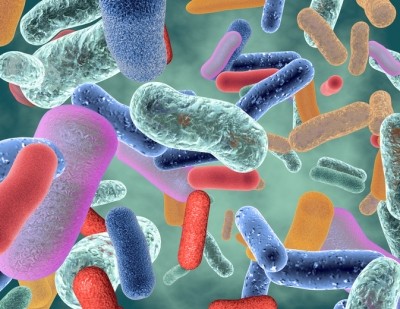Special Edition: Eubiotics development
Essential oil, enzyme blend may provide ionophore replacement for dairy cows

In a series of combined experiments, an international team of researchers from Brazil and the US examined the use of an essential oils blend and the enzyme amylase as an alternative to ionophore use in dairy cattle diets. The group was examining the response on cattle digestion, ruminal fermentation and milk yield.
“The hypothesis of this study was that EO [essential oils] and EOA [essential oils and amylase] could replace MON [monensin] in diets of cows without decreasing animal performance,” the researchers said. “In addition, we expected that the dietary supplementation of EO and amylase would exert synergistic positive effects on ruminal fermentation, nutrient digestibility, and milk production of cows.”
Adding the essential oil blend and amylase to dairy cattle diets improved ruminal concentration of butyrate, branched-chain fatty acids and acetate and lowered amounts of NH3-N, the researchers said. “Milk production efficiency was improved by feed additives, and the second experiment demonstrated no differences in milk production efficiency among them,” they added.
“Either EO or EOA can replace MON without decreasing animal performance,” they said “There is no evidence that EO along with amylase has a positive synergistic effect on milk yield, but EOA may increase milk protein content and production.”
Research team members published their work in the Journal of Dairy Science.
Why essential oils and enzymes use?
As emerging economies have increased wealth there is more interest in a supply of meat and milk, the researchers said. This demand is anticipated to double by 2050. Despite the demand increase, farmers face challenges including pressure to lower greenhouse gas production, competition with human-edible feed ingredients and limits on the use of antibiotics and growth promoters, they said.
There has been research done previously exploring the use of feed enzymes and plant extracts to boost nutrient use in ruminates in place of using an ionophore antibiotic.
Ionophores and antibiotics have been used to lower the risk of acidosis and ketosis and improve feed efficiency, the researchers said. However, alternatives also have been examined including essential oils (EO) and enzyme products.
“Essential oils are aromatic compounds extracted from plants by fermentation or distillation that exhibit antimicrobial properties, promote propionate production in in vitro studies, and may improve milk and FCM production of dairy cows,” they said. Similarly, enzymes have been explored for use in ruminant diets.
Use of additive enzymes has been reconsidered in recent years as feed costs have risen and prices to produce enzymes has dropped, they said. “The addition of enzyme products with amylase activity in dairy cow diets has increased diet digestibility and milk production of cows,” they added.
Previous research has also reported improved FCM production in dairy cows given a diet supplemented with EO and amylase (EOA) compared with cows fed monensin, they said.
Although some evidence suggests that EOA supplementation may boost milk production in dairy cows, less is known regarding the use of the feed supplements on ruminal fermentation, cow performance and digestion, the researchers said.
“The objective of this study was to evaluate the effects of feed additives (MON, EO, and EOA) on nutrient intake and total apparent digestibility, ruminal fermentation, microbial protein synthesis, serum glucose and urea concentrations, milk yield and composition, and N utilization in dairy cows.”
Feeding trials
In the first feeding study, eight cannulated cows were given one four diets for a 21 day period – 7 days of sample collection and 14 days of acclimation, the researchers said. Cows were rotated at the end of each period to another of the trial diets.
The diets included a control with no feed additives (CON), the diet with monensin (MON) at 13mg/kg of diet dry matter, the diet with a blend of essential oils at 44mg/kg of dry matter (EO), or the essential oil supplemented diet with a-amylase at 330 kilo novo units/kg of diet dry matter (EOA), they said. The enzyme and essential oil blend were commercially available and the blend included thymol, eugenol, vanillin and limonene.
Cows were assessed for the influence of feed additives on total apparent digestibility of nutrients, ruminal fermentation, nitrogen (N) use, blood glucose and urea concentration, microbial protein synthesis along with milk yield and composition, they said. Feed and additive samples were collected for analysis along with milk, ruminal digesta, urine and manure.
In the second feeding experiment, 30 cows were given one three diets – the MON, EO and EOA diets used in the earlier trial – for a period of 9 weeks, the researchers said.
Refusals, blood and fecal samples were collected every three weeks, milk yield was recorded at milking and sampled weekly, they said.
Results
Overall, results from both studies were similar for several factors regarding cows on the supplemented diets, the researchers said.
“Therefore, either EO or EOA can replace MON in diets of dairy cows while maintaining performance,” they said.
In the initial feeding study, nutrient intake and digestibility remained constant for cows in all groups, the researchers said. However, the feed additive use tended to improve digestion of dry matter and crude protein and lower concentration of ruminal NH3-N.
The supplemented feeds also raised ruminal concentrations of acetate, branched-chain fatty acids and butyrate, they said. Cows on diets with EO and EOA showed lower pH, more NH3-N and tended to have more total volatile fatty acids than cows getting the MON diet.
No treatment to time interaction was noted for ruminal fermentation measurements, the researchers said.
Cows on the supplemented diets displayed an improved efficiency of N transfer into milk, with those on the EOA diet outperforming those on the EO diet, they said. Supplement use did not alter milk yield or composition, but it did improve milk yield efficiency.
In the second trial, cows demonstrated similar nutrient intake and digestibility, although those on the EOA diet tended to have greater dry matter intake than those on the EO diet, they said. Milk production and blood metabolites were similar among the diets.
Cows receiving feed supplemented with MON or EOA had larger amounts of milk protein than those on the EO diet, they said. “Feed additives increased the concentrations of acetate, butyrate, and branched-fatty acids in ruminal fluid, whereas treatments containing EO had greater ruminal butyrate and NH3-N concentrations,” they added.
Source: Journal of Dairy Science
Title: Nutrient digestibility, ruminal fermentation, and milk yield in dairy cows fed a blend of essential oils and amylase
Authors: G Silva, C Takiya, T Del Valle, E de Jesus, N Grigoletto, B Nakadonari, C Cortinhas, T Acedo, F Rennó
DOI: https://doi.org/10.3168/jds.2018-14789















